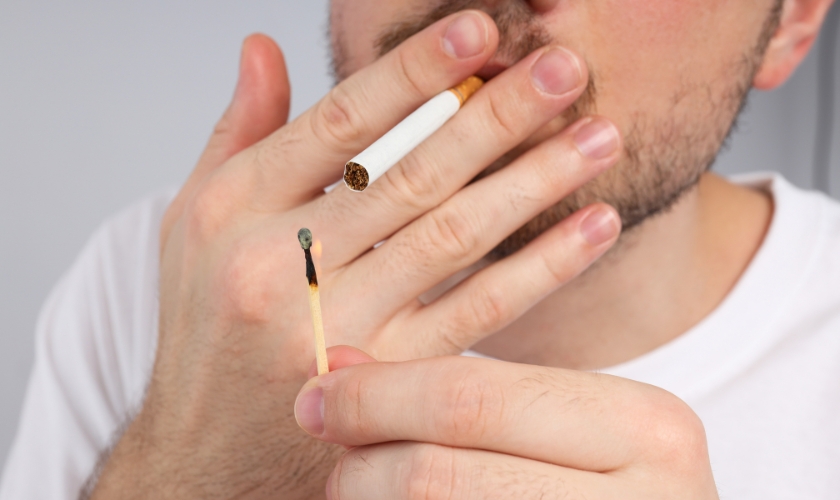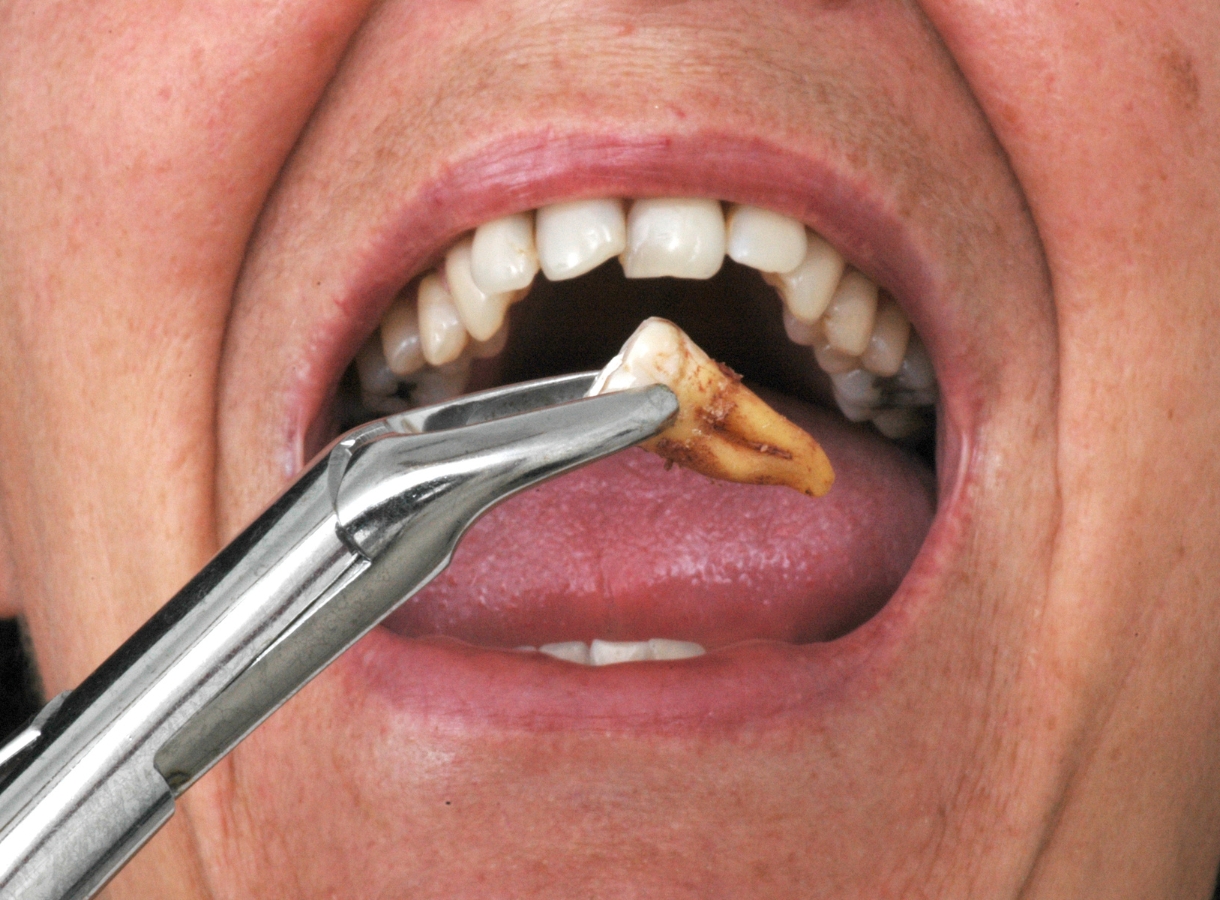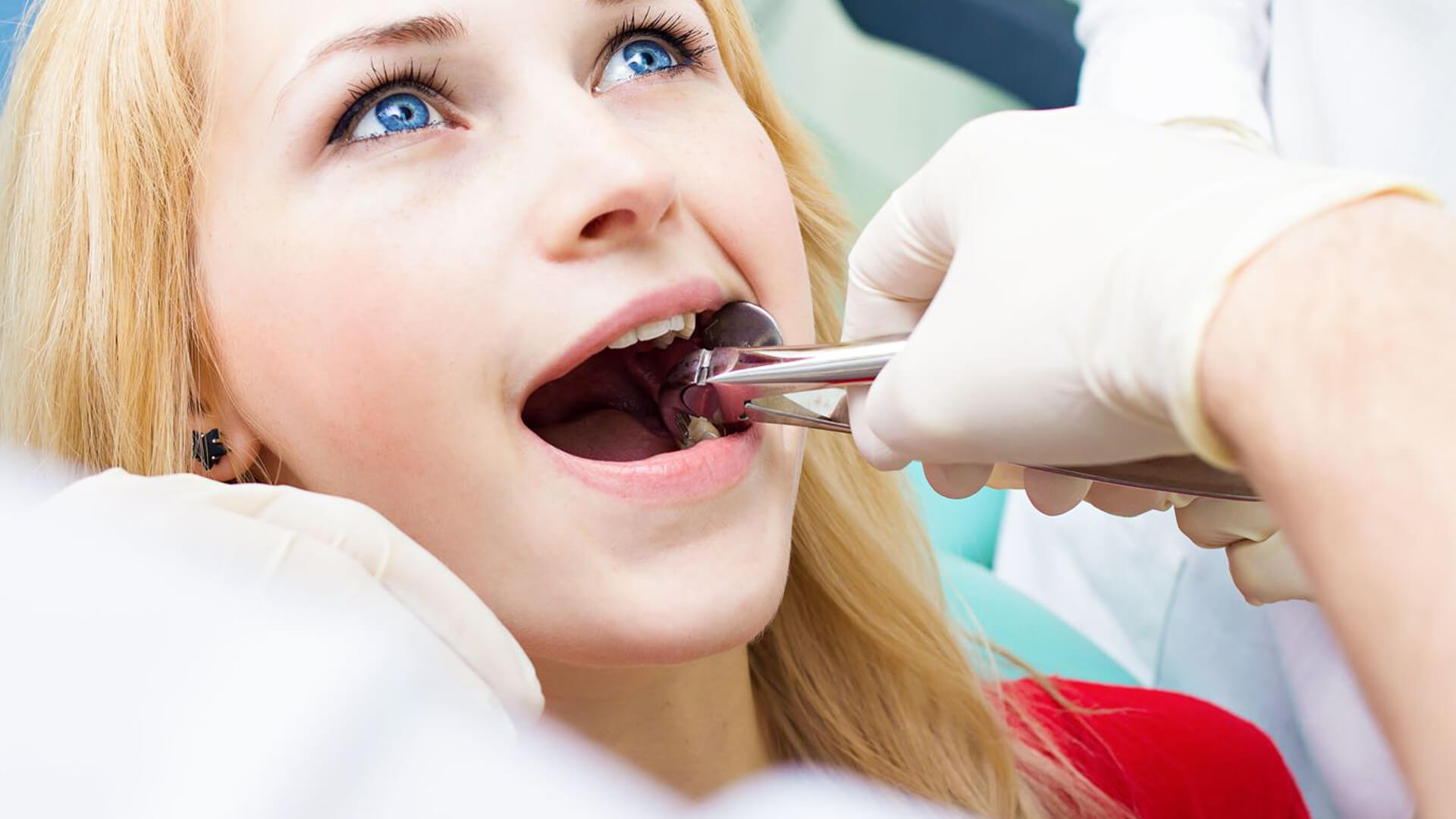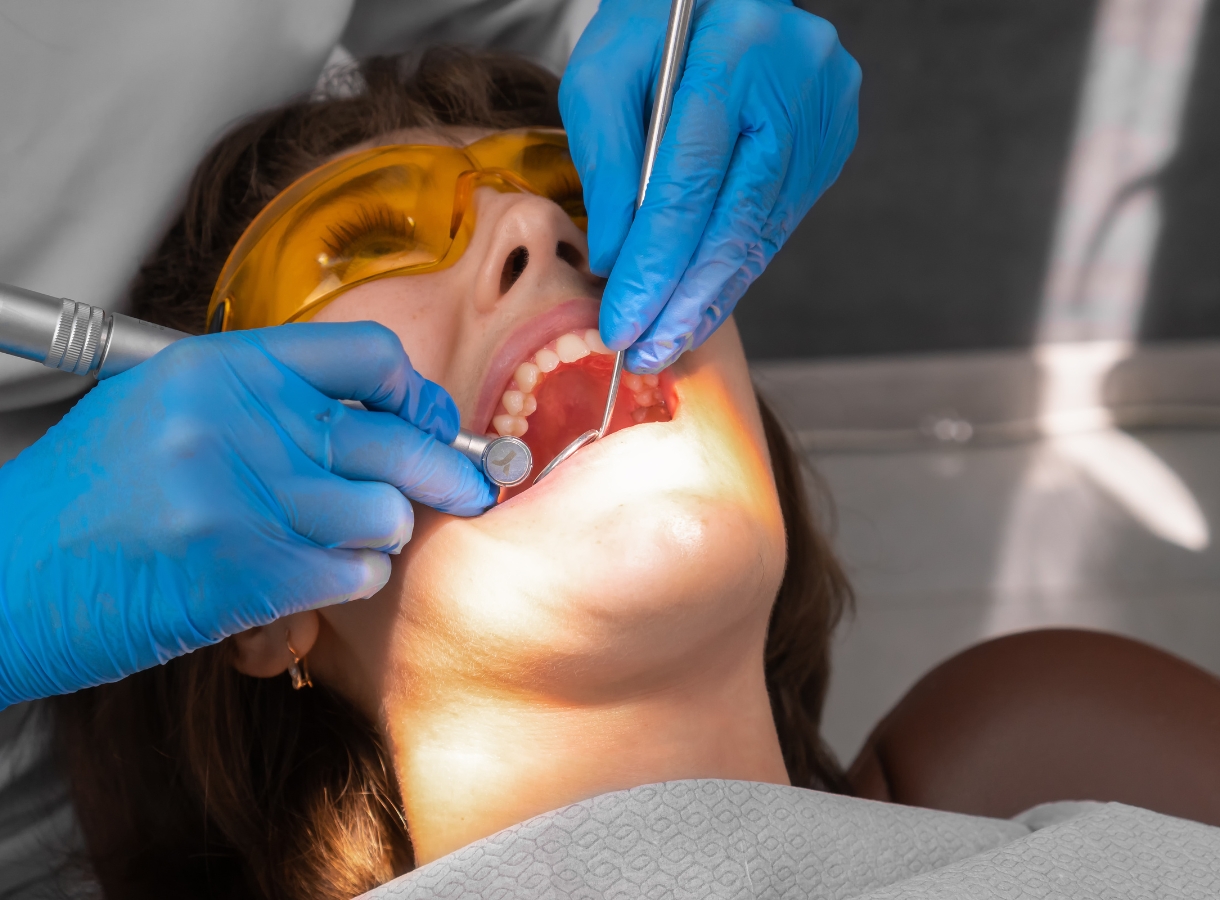
By Thrive Family Dentistry | August 26, 2024
After a tooth extraction, proper aftercare is crucial to ensure a smooth and healthy recovery. One common concern is whether it is safe to smoke after an extraction. Smoking can cause difficulties and have a major negative influence on the healing process.
In this blog, we’ll explore why smoking can be problematic after teeth extraction, the potential risks involved, and the best practices for a speedy recovery.
Why Smoking After Tooth Extraction Can Be Risky?
Smoking is known to have several negative effects on the healing process following an extraction. Here’s why smoking can be problematic:
- Increased Risk of Dry Socket: A painful condition known as “dry socket” arises when there is a blood clot that forms in the extraction site is dislodged or dissolves too early. This exposes the bone and nerves, excruciating pain and postponing healing. Because smoking creates a vacuum that can damage the blood clot, smoking can increase the chance of developing dry sockets.
- Impaired Blood Flow: Cigarette nicotine narrows blood vessels, which reduces the damaged area’s blood flow. This may impede the flow of necessary oxygen and nutrients to the extraction site, delaying the healing process.
- Infection Risk: Smoking can weaken the immune system and reduce the mouth’s ability to fight off infections. This may result in issues like infection at the extraction site, which can prolong recovery time and may require additional treatment.
- Delayed Healing: The harmful chemicals in cigarette smoke can irritate the tissues around the extraction site, causing inflammation and delaying the healing process. This can lead to prolonged discomfort and a longer recovery period.
How to Manage Smoking Post-Extraction?
If you are a smoker and have recently had teeth extraction, it’s important to follow these guidelines to minimize risks and promote healing:
- Avoid Smoking for at Least 48-72 Hours: It is strongly recommended to avoid smoking for at least 48-72 hours after an extraction. This initial period is critical for the formation of a stable blood clot, which helps protect the extraction site and promotes healing.
- Consider Quitting Smoking: While quitting smoking entirely is the best option for your overall health, at the very least, reducing or eliminating smoking during the recovery period can significantly improve your chances of a successful and speedy recovery.
- Use a Nicotine Replacement: If quitting smoking is not an option, consider using nicotine replacement products like patches or gum. These alternatives can help reduce cravings without the harmful effects of smoking on the extraction site.
- Maintain Good Oral Hygiene: Keeping the extraction site clean is crucial to prevent infection. Gently brush your teeth and use a mild mouthwash, but avoid vigorous rinsing that can disturb the blood clot.
- Follow Post-Operative Instructions: Adhere to the aftercare instructions provided by your dentist in Auburn or oral surgeon. This may include using prescribed medications to maintain optimal recovery, avoiding certain meals, and making follow-up sessions.
What Can Be Alternatives to Smoking?
If you’ve recently had a tooth extraction, it’s crucial to avoid smoking to ensure proper healing. Here are effective alternatives and healthier coping mechanisms to help manage nicotine cravings and support your recovery:
Nicotine Replacement Options
- Nicotine Patches: These patches deliver a steady, controlled amount of nicotine through your skin. They help manage cravings and withdrawal symptoms without the harmful effects of smoking. Available in various strengths, patches allow you to gradually reduce nicotine intake.
- Nicotine Gum: Chewing nicotine gum provides a quick fix for cravings while keeping your mouth occupied. It comes in different flavors and strengths, making it a flexible option.
- Nicotine Lozenges: These dissolve slowly in your mouth, releasing nicotine gradually. Lozenges are a discrete way to handle cravings and are gentler on your mouth compared to gum.
- Nicotine Nasal Spray: This delivers nicotine through your nasal membranes, offering rapid relief from cravings. It’s a fast-acting solution but can cause nasal irritation if used excessively.
- Nicotine Inhalers: Inhalers let you inhale vaporized nicotine, mimicking the hand-to-mouth action of smoking. This method addresses both the physical and psychological aspects of smoking.
Healthier Coping Mechanisms
- Chewing Sugar-Free Gum: Keeping your mouth busy with sugar-free gum can distract you from cravings and aid oral hygiene.
- Physical Activity: Exercise helps manage stress and reduce cravings. Activities like walking or yoga boost your mood and alleviate withdrawal symptoms.
- Relaxation Techniques: Deep breathing exercises and meditation are two strategies that can help control stress and cravings.
- Stay Hydrated: Drinking water supports overall health and helps flush nicotine from your system.
- Seek Support: Joining a support group or talking to a counselor can provide motivation and encouragement, making the quitting process more manageable.
Following proper aftercare practices and maintaining good oral hygiene will help promote healing and reduce the risk of complications. If you experience any unusual symptoms or complications, contact your dentist promptly to address any issues. Prioritizing your oral health and adhering to these guidelines will help you recover more quickly and comfortably from your tooth extraction.
Frequently Asked Questions
It is generally recommended to avoid smoking for at least 48-72 hours following a tooth extraction. This time frame allows the initial blood clot to stabilize and helps prevent complications such as dry sockets. However, for optimal healing and to reduce the risk of complications, it’s best to avoid smoking for as long as possible. If you must smoke, try to delay it as much as you can and follow your dentist’s advice on when it might be safe to resume.
If you accidentally smoke before the recommended time, keep an eye out for any signs of difficulties at your extraction site, such as increased pain, swelling, or an unusual odor. Contact your dentist immediately if you experience any concerning symptoms. They may advise additional measures to protect the site and manage any potential issues. It’s imperative that you adhere to all post-operative care guidelines to mitigate risks and support healing.
Smoking can prolong the overall healing time after a tooth extraction. Cigarette smoke contains dangerous compounds that irritate the extraction site, increase the risk of infection, and interfere with the body’s natural healing processes. Consequently, smokers often experience a longer recovery period compared to non-smokers. To optimize healing and reduce recovery time, it is recommended to avoid smoking during the healing phase and adhere to all aftercare instructions provided by your dentist.



